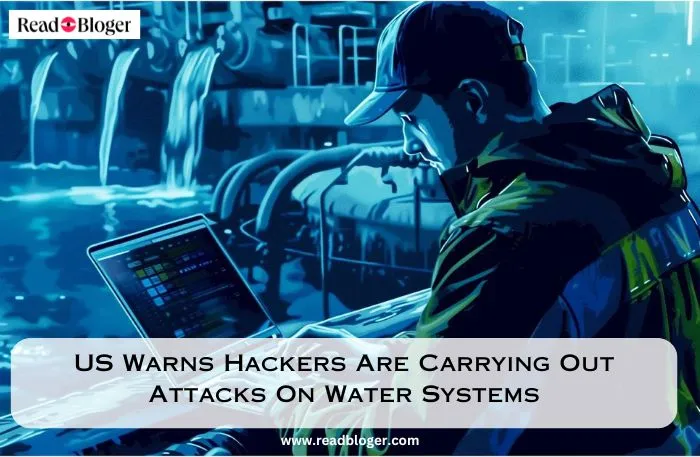The United State Epa and National Safety Agency are cautioning state governments that they need to do even more to protect water and waste water systems from cyberattack. US warns hackers are carrying out attacks on water systems, U.S. government is warning state governors that foreign hackers are carrying out disruptive cyberattacks against water.
In a letter to state guvs, the EPA and NSA ask them to make sure that all water systems in their states carry out extensive analyses of their existing cybersecurity methods to recognize any type of substantial susceptabilities, take steps to reduce their risks and see to it they have plans to prepare for, reply to and recuperate from a cyber event.
US warns hackers Water systems
” Drinking water and waste water systems are an attractive target for cyberattacks since they are a lifeline important facilities market, yet frequently do not have the sources and technological capacity to adopt rigorous cybersecurity methods,” the letter advises.
The EPA pointed out that there’s a lot of assistance offered, from the Division of Homeland Safety and security’s Cybersecurity and Framework Security Agency, the American water systems Functions Association, the National Rural Water Organization and the Water Information Sharing and Analysis Center, in addition to the EPA itself.
However, the letter warns, “In most cases, even standard cybersecurity preventative measures– such as resetting default passwords or upgrading software application to address known susceptabilities– are not in place and can imply the difference in between company customarily and a disruptive cyberattack.”
The EPA says it plans to join the water systems to create a Water Market Cybersecurity Task Force to identify near-term actions and techniques to decrease the risk of water supply nationwide to cyberattacks.
We have actually worked across federal government to apply considerable cybersecurity requirements in our country’s critical framework, including in the water sector, as we stay cautious to the dangers and expenses of cyber hazards.
Cyberattacks on essential infrastructure– including public utility– have rocketed in the last couple of years, with water systems several apparently accomplished by teams associated with hostile country states.
In one example, enemies connected to the Iranian Government Islamic Revolutionary Guard Corps carried out destructive cyberattacks against a number of important infrastructure companies, consisting of alcohol consumption water systems. They had the ability to do this by targeting and disabling Unitronics Programmable Reasoning Controllers, a widely utilized piece of functional modern technology, because the center had failed to alter a default supplier password.
In one more example, a Chinese government-sponsored cyber group called Volt Tropical storm had the ability to jeopardize several essential framework systems, consisting of alcohol consumption water.
“The current strikes targeting water and waste water systems need to act as a stark pointer that our crucial framework is composed of cyber-physical systems that can be targeted and exploited by hackers,” commented Debrup Ghosh, elderly supervisor at the Synopsys Software Application Stability Team.
“This drives home the factor that organisations of all kinds, including utilities, are basically software program business– and as such, they need to take cybersecurity hygiene and software application supply chain security seriously.
assigned water systems supply have actually been assessed for susceptabilities, indicating a list of activities suggested by the Cybersecurity and Framework Safety Firm (CISA) that might help to improve protection. “In a lot of cases, even fundamental cybersecurity safety measures– such as resetting default passwords or updating software application to deal with recognized susceptabilities– are not in position and can imply the difference in between organization customarily and a turbulent cyberattack,” the letter advises.
Hackers thought to be affiliated with the Iranian federal government performed strikes versus US water systems facilities in November that hadn’t changed the default manufacturing password on usual operational technology they were making use of. White House national security official Anne Neuberger claimed the event was a call to tighten protection around energies, with the US Treasury sanctioning six Iranian Army authorities in charge of the assaults in February.



